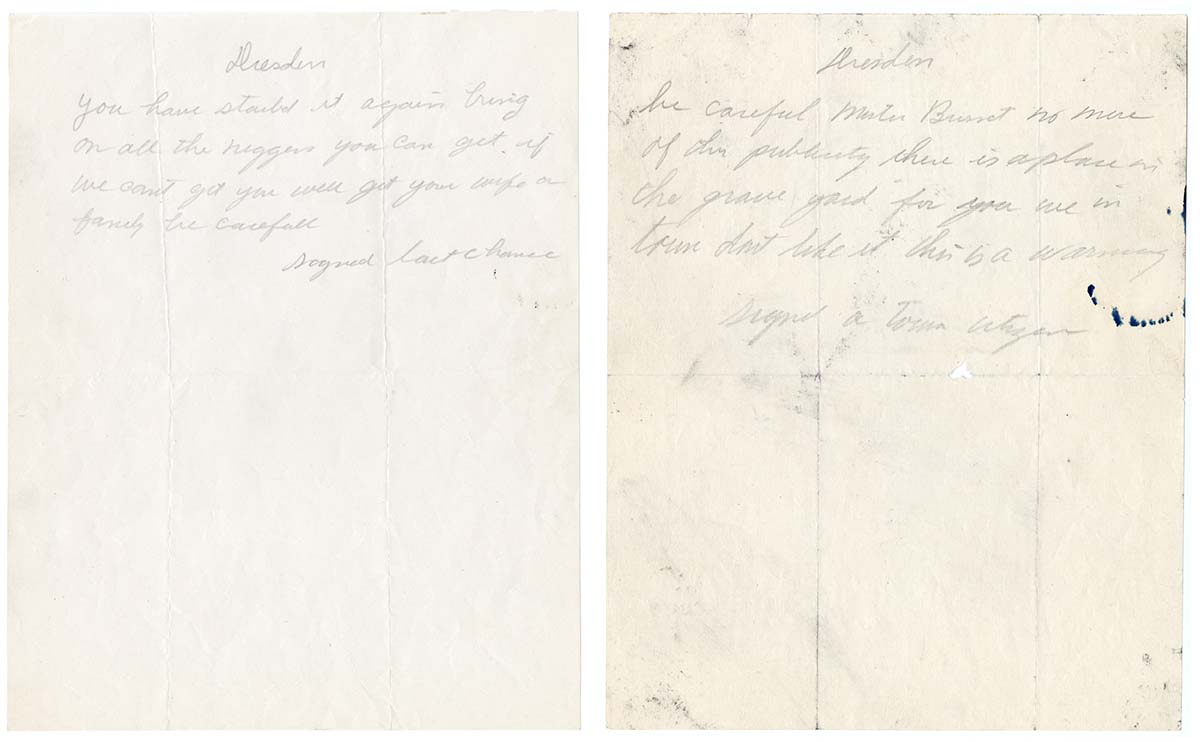Conclusion
After 1956, Ladd led the NUA in the capacity of president until the organization ended regular meetings in 1958. During this time, the NUA focused on projects to support the local Black community.
In recognition for his role in the NUA, Alexander was awarded the Ontario Human Rights Commission Certificate of Merit in 1973.
Burnett’s role in the NUA came at a significant personal cost. His carpentry business was boycotted by many in the community and he was forced to leave Dresden and moved to London, Ontario for other employment. While he did not play a public role in fighting discrimination after 1956, he continued to support the work of others. His commitment to the values of racial equity are demonstrated in this 1954 quote:
“It has been stated that you can’t make a law to make one man love another. I think Premier Frost knew very well that the law would not do that, but it would eliminate the act of discrimination. And of course our personal feelings will come into it later. We will learn to like each other.”

hand-written threats to Hugh Burnett
full text of letters available in record
Details
What transpired in Chatham-Kent is a legacy that we should not soon forget. The courage and determination of the NUA were ultimately rewarded as the barriers that divided their community finally toppled down. Their victories made it possible for further triumphs and opened the door to future Human Rights legislation across Ontario and Canada.
In 1958, the provincial government passed the Ontario Discrimination Commission Act. The purpose of the Act was to develop a commission to oversee the Fair Employment Practices and the Fair Accommodations Practices Acts as well as develop education programs. In 1961, there was an amendment to the Act which changed the name of the commission to the Ontario Human Rights Commission. Moreover in 1961, an amendment to the Fair Accommodations Practices Act was made that prohibited discrimination in rental accommodations.
In 1962, the Ontario Human Rights Code was enacted. The code brought together into one law various acts dealing with different kinds of discrimination and added some new protections. The first of its kind in Canada, the Ontario Human Rights Code continues to guarantee equality before the law and prohibit discrimination today.
In 2010, a plaque in honour of the National Unity Association was erected by the Ontario Heritage Trust in Dresden Ontario.

